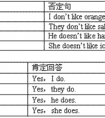用下列框中词的适当形式填空。luckyone open dolphin take 1. Would you mind _______ the door, please? It's hot today. 2. Zhai Zhigang is the _______ Chinese as-九年级英语
用作宾语稍复杂,关键留意谓语动词(跟动名词作宾语的常用动词附后),时态同谓动作比较,先于谓动用完成式,其逻辑主语不固定,在句中/句外均有之。
否定式其前加not,复合式其前加物主词,非句首宾格词也可用,尤其口语中更如此。
说明:1、主-----主语 2、宾-----宾语 3、表------表语 4、定------定语 5、谓动---谓语动词
动名词的用法:
一、动名词作主语
1. 直接位于句首做主语。例如:
Swimming is a good sport in summer.
2. 用 it 作形式主语,把动名词(真实主语)置于句尾作后置主语。
动名词做主语时,不太常用 it 作先行主语,多见于某些形容词及名词之后。例如:
It is no use telling him not to worry.
常见的能用于这种结构的形容词还有:better,wonderful,enjoyable,interesting,foolish,difficult,useless,senseless,worthwhile,等。
注意:important,essential,necessary 等形容词不能用于上述结构。
3. 用于“There be”结构中。例如:
There is no saying when he'll come.很难说他何时回来。
4. 用于布告形式的省略结构中。例如:
No smoking ( =No smoking is allowed (here) ). (禁止吸烟)
No parking. (禁止停车)
5. 动名词的复合结构作主语
当动名词有自己的逻辑主语时,常可以在前面加上一个名词或代词的所有格,构成动名词的复合结构
(这时,名词或代词的所有格做动名词的逻辑主语)。
动名词的复合结构也可以在句中作主语。例如:
Their coming to help was a great encouragement to us.
二、动名词作宾语
1.作动词的宾语
某些动词后出现非限定性动词时只能用动名词作宾语,不能用不定式。常见的此类动词有:
admit, appreciate, excuse, stand, advise, allow, permit, avoid, consider, enjoy, finish
They went on walking and never stopped talking.他们继续走,说个不停。
I found it pleasant walking along the seashore.在海滩上走真是乐事。
Mark often attempts to escape being fined whenever he breaks traffic regulations.
每当马克违反交通规则时,他常常企图逃避罚款的处分。
2.作介词的宾语
We are thinking of making a new plan for the next term. 我们正考虑为下学期制定新的计划。
Shall we have a rest or get down to doing our work? 我们休息呢还是开始干活?
3.作形容词的宾语
The music is well worth listening to more than once. 这种曲子很值得多听几遍。
We are busy preparing for the coming sports meet. 我们正为马上到来的运动会忙着做准备。
三、动名词作表语
动名词作表语时句子主语常是表示无生命的事物的名词或what引导的名词性从句。
表语、动名词与主语通常是对等的关系,表示主语的内容,主语、表语可互换位置。
Your task is cleaning the windows. 你的任务就是擦窗户。
(Cleaning the windows is your task.)
What I hate most is being laughed at. 我最痛恨的就是被别人嘲笑。
(Being laughed at is what I hate most.)
四、动名词作定语
动名词作定语往往表示被修饰词的某种用途。如:
a walking stick =a stick for walking=a stick which is used for walking
a washing machine=a machine for washing=a machine which is used for washing
a reading room=a room for reading=a room which is used for reading
a measuring tape=a tape for measuring=a tape which is used for measuring
sleeping pills=pills for sleeping=pills which is used for sleeping
动名词也有时态和语态的变化,如表所示(以及物动词write为例),不及物动词没有语态的变化。
| 时态、语态 | 主动 | 被动 |
| 一般式 | writing | being written |
| 完成式 having written |
having been written |
1) 动名词做主语时,谓语动词为单数
2) 在动名词和不定式中,作为介词的宾语是动名词
3) 动名词的否定直接在其前加否定词,通过代词的宾格或所有格形式给出逻辑主语
例:I would appreciate you calling back this afternoon.
4) 有些词后只能接动名词
acknowledge;admit; advise;advocate;allow;appreciate; avoid; celebrate; consider; contemplate; defer; delay; deny;
detest; discontinue; dislike; dispute; enjoy; it entails; escape; excuse; explain; fancy; feel like; finish; forgive; can’t help;
hinder; imagine; it involves; keep; it means; mention; mind; miss; it necessitates; pardon; postpone; practice; prevent;
recall; report; resent; resist; risk; suggest; understand...
5) 另外还有一些接-ing形式的常用说法
it’s no good; it’s no/little/hardly any/ use; it’s not/hardly/scarcely use; it’s worthwhile; spend money/time; there’s no;
there’s no point in; there’s nothing worse than; what’s the use/point
6) 有些词后面加不定式和动名词均可
remember,forget,try,stop,go on,continue,stop,regret,cease,mean后面均可用不定式和-ing形式,但意义截然不容。
例:remember to do/doing:
①I remembered to post the letters.(指未来/过去未来将要做的动作)
②I remembered posting/having posted the letters.(我记得做过这个动作)
forget与remember的用法类似。
regret的用法:
①I regret to inform you that…(我很遗憾地通知你……)
②I regretted having left the firm after twenty years.(为了“二十年前的离开”而遗憾。)
try to(努力)与try +–ing(试验):
①You really must try to overcome your shyness.
②Try practicing five hours a day.
考点名称:可数名词(单数名词,复数名词)
- 可数名词:
是指能以数目来计算,可以分成个体的人或东西;
因此它有复数形式,当它的复数形式在句子中作主语时,句子的谓语也应用复数形式。 - 名词单数变复数的规则:
巧记以f\fe结尾的可数名词复数情况 构成方法 例词 读音 一般情况 在词尾加-s desk→desks
map→maps-s在清辅音后发/s/ day→days
girl→girls-s在元音和浊辅音后发/z/ 以s,x,ch,sh结尾的词 在词尾加-es bus→buses box→boxes watch→watches fish→fishes -es发/iz/音 以辅音字母加-y结尾的词 变y为i再加-es family→families
factory→factories
party→patries-ies发/iz/音 以元音字母加-y结尾的词 在词尾加-s day→days
boy→boys
key→keys-s发/z/音 以f或fe结尾的词 变f或fe为v再加-es knife→knives
life→lives
wife→wives
half→halves-ves发/vz/音 以辅音字母加-o结尾的词 在词尾加-es potato→potatoes
tomato→tomatoes
hero→heroes-es发/z/音 以元音字母加-o结尾的词 在词尾加-s radio→radios
zoo→zoos-s发/z/音
妻子骑牛拿起刀,wife,calf,knife ↑
追得贼狼满街跑,thief,wolf →→→变f或fe为v,再加es
碰倒架子丧己命,shelf,self,life ↓
手帕树叶半空飘。handkerchief,leaf,half ↓ - 名词复数的不规则变化:
1.不规则形式:
child→children(儿童)
man→men(男人)
woman→women (女人)
an Englishman→two Englishmen(英国人)
foot→feet(脚)
- 最新内容
- 相关内容
- 网友推荐
- 图文推荐
| [家长教育] 孩子为什么会和父母感情疏离? (2019-07-14) |
| [教师分享] 给远方姐姐的一封信 (2018-11-07) |
| [教师分享] 伸缩门 (2018-11-07) |
| [教师分享] 回家乡 (2018-11-07) |
| [教师分享] 是风味也是人间 (2018-11-07) |
| [教师分享] 一句格言的启示 (2018-11-07) |
| [教师分享] 无规矩不成方圆 (2018-11-07) |
| [教师分享] 第十届全国教育名家论坛有感(二) (2018-11-07) |
| [教师分享] 贪玩的小狗 (2018-11-07) |
| [教师分享] 未命名文章 (2018-11-07) |

![Which of the following can you probably see in the meeting room? [ ]A. B. C.D. -七年级英语](http://www.00-edu.com/d/file/ks/4/2/dongmingci/2020-01-08/small97361980a56115e1c9237567439904fe1578422951.jpg)

![—Can the boy finish_____ the book in about a week? —I think he can. [ ]A. read B. reading C. to read D. reads -八年级英语](http://www.00-edu.com/d/file/ks/4/2/dongmingci/2020-01-08/smallfa4d713075e249356362fe7392193a301578421751.png)


